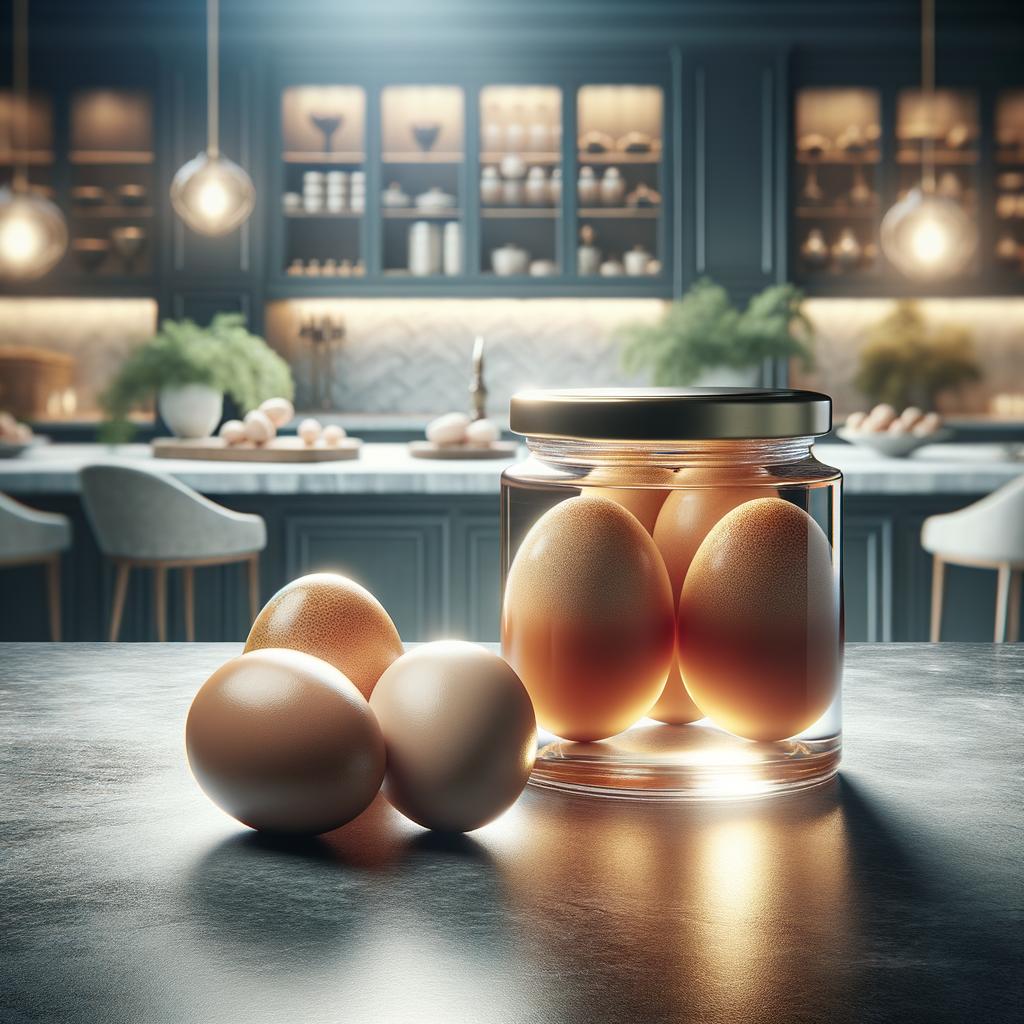Preserved Eggs

Description
Preserved eggs, also known as century eggs or thousand-year eggs, are a unique and fascinating ingredient in the culinary world. They are not your everyday chicken eggs, but rather a product of a remarkable preservation process that results in a completely transformed food item. The exterior of these eggs is a dark, almost black color and the inside yields an amber-colored yolk and a dark green, jelly-like white. The flavor profile is complex, with a strong, briny taste, a hint of sulfur, and a finish that is surprisingly creamy and rich. The texture is smooth and gelatinous, a stark contrast to the firmness of a fresh egg. These eggs are a testament to the ingenious preservation methods of our ancestors.
Primary Uses
Preserved eggs are a versatile ingredient in many Asian cuisines, especially in Chinese cooking. They are often cut into wedges and served as a side dish with tofu or congee, used in fillings for pastries, or chopped and mixed into salads for an added depth of flavor. Outside the kitchen, preserved eggs have also been used in traditional Chinese medicine to help cool the body and improve digestion.
History
The history of preserved eggs dates back to the Ming Dynasty in China, where they were initially created as a way to preserve excess eggs. Over the centuries, they have become a beloved delicacy, celebrated for their unique taste and texture. There's an enduring myth that preserved eggs were originally made by soaking eggs in horse urine, but rest assured, this is merely a folk tale. The truth is that the preservation process involves a mixture of clay, ash, salt, quicklime, and rice hulls, which gradually changes the eggs' pH and texture over several weeks or months.
Nutritional Information
Nutritionally, preserved eggs are a powerhouse. They are high in protein, low in fat, and contain essential vitamins and minerals such as vitamin D, B12, selenium, and choline. Despite their high sodium content, they are a good source of healthy fats and nutrients. Compared to regular eggs, preserved eggs have a higher proportion of fat, but this is mostly healthy unsaturated fat. They also have a higher concentration of certain minerals due to the preservation process. However, as with any food, moderation is key due to their high sodium content.

